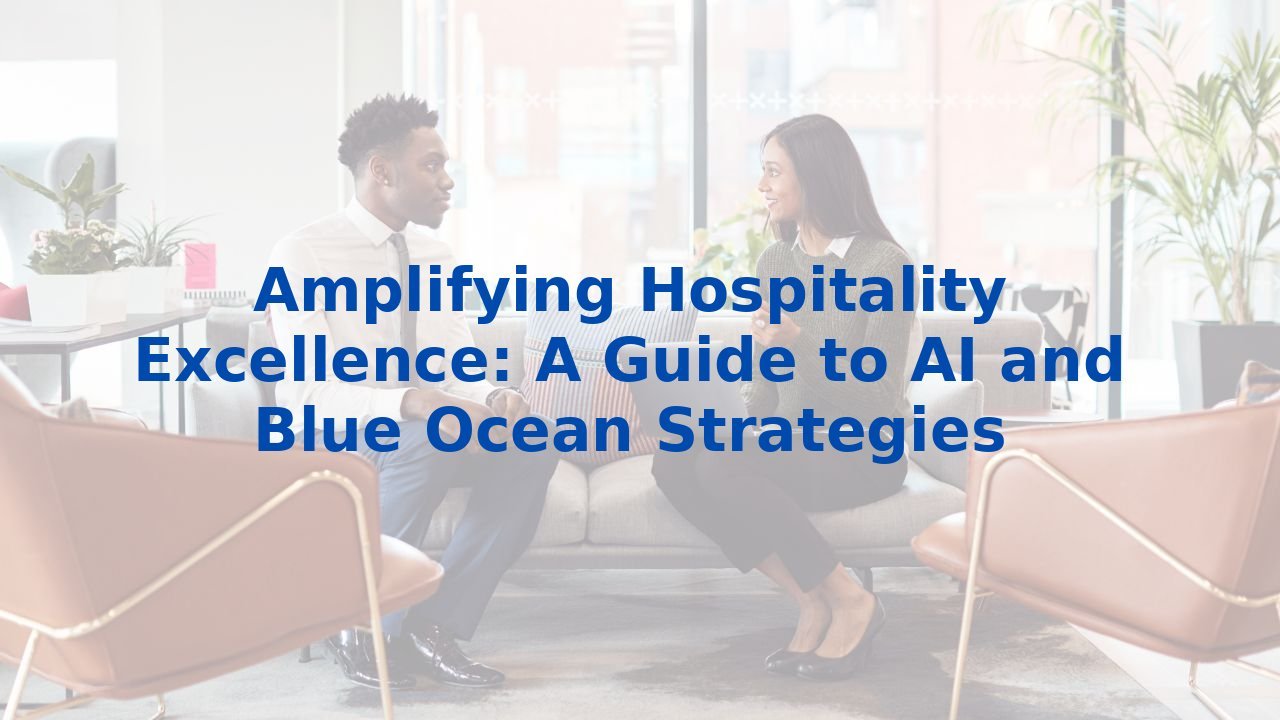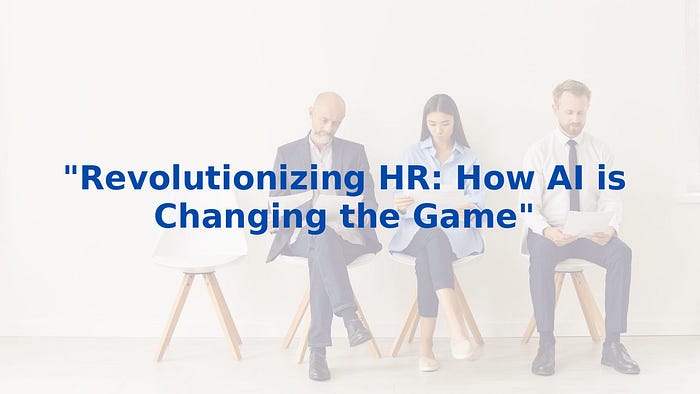Amplifying Hospitality Excellence: A Guide to AI and Blue Ocean Strategies
Amplifying Hospitality Excellence: A Guide to AI and Blue Ocean Strategies
In an era where competition is fierce and customer expectations are at an all-time high, the hospitality industry stands at a critical juncture. To not only survive but thrive, businesses must harness innovative strategies that elevate their operational efficiency and enhance guest experiences. At the crossroads of innovation lies Artificial Intelligence (AI) and the concept of Blue Ocean Strategy, which collectively hold the key to unlocking unprecedented growth and excellence in hospitality.
Understanding Blue Ocean Strategy
Blue Ocean Strategy involves creating uncontested market space while making the competition irrelevant. In the hospitality sector, this means breaking free from the saturated markets and crafting new niches that captivate and retain customers. Instead of battling rivals over existing customers, businesses can innovate to create unique offerings that appeal to previously untapped customer segments.
The AI Advantage in Hospitality
Artificial Intelligence serves as a powerful catalyst in executing Blue Ocean Strategies. With its ability to analyze vast amounts of data and discern patterns, AI empowers hospitality businesses to streamline operations and deliver personalized services that resonate with their guests.
1. Transformative Process Discovery
A vital component in both AI and Blue Ocean Strategy is identifying hidden inefficiencies within business processes. AI-driven process discovery allows organizations to sift through historical operational data, unveiling insights that can lead to innovative service offerings. For instance, by identifying peak demand times and customer preferences through data analytics, businesses can preemptively adjust staffing or tailor promotions, creating value-driven experiences that elevate guest satisfaction.
2. Innovative Process Mapping
When deploying AI for process mapping, hospitality organizations can visualize workflows and interactions with precision. This allows businesses to see how every facet of their operations interconnects. For instance, AI-generated process maps can highlight bottlenecks in booking systems or check-in procedures, paving the way for streamlined operations that impress guests and establish the brand as a leader in operational excellence.
3. Efficient Process Management
Integrating AI with everyday operations transforms process management. Imagine real-time monitoring systems that track key performance indicators (KPIs) in a hotel’s operations—facilitating quick interventions when variances occur. With AI's predictive capabilities, managers can not only respond proactively to issues but also foresee changes in guest preferences and trends, allowing them to pivot their strategies effectively.
4. Robust Process Automation
AI’s role in process automation cannot be overstated. Hospitality businesses that embrace Robotic Process Automation (RPA) reap the benefits of efficiency and accuracy by automating repetitive tasks. From managing online bookings to handling customer inquiries, AI streamlines operations and minimizes human error, all while liberating staff to direct their focus on enhancing guest engagement and service.
5. Continuous Process Improvement
The journey doesn’t end with automation. AI fosters a culture of continuous process improvement. By offering actionable feedback and suggestions derived from analyses, hospitality organizations can refine their offerings over time. This iterative approach ensures that businesses not only enhance their existing services but also continuously innovate, solidifying their position in the Blue Ocean of the market.
The Ripple Effect of AI on Efficiency and Employee Empowerment
As hospitality businesses optimize operations using AI, the advantages extend to cost reductions, productivity enhancements, and improved customer experiences. Notably, training employees for AI integration is a cornerstone of this transformation.
1. Embracing New Technologies
To maximize the potential of AI, staff must undergo training that focuses on understanding AI capabilities. When employees familiarize themselves with tools like machine learning and workflow automation, they can better adapt to technological changes, ultimately raising the bar for service excellence.
2. Enhancing Decision-Making
AI-driven insights empower staff to make informed decisions quickly. With comprehensive data at their fingertips, employees can anticipate guest needs and personalize services, fostering a remarkable guest experience that transcends expectations.
3. Navigating Ethical Dimensions
As AI becomes deeply embedded within hospitality processes, it’s crucial for employees to engage with the ethical aspects of AI implementation. Training programs fostering an understanding of data privacy and bias can help staff navigate these complex issues responsibly, further enhancing the Trust Factor that guests seek in their hospitality experiences.
Conclusion
In conclusion, integrating AI within a Blue Ocean Strategy framework in the hospitality industry creates a pathway to excellence. By amplifying operational efficiencies, minimizing costs, and enriching guest engagement, businesses can carve out their own unique space in the marketplace. Moreover, investing in employee training for AI not only maximizes the impact of this powerful tool but also nurtures a culture of innovation and responsiveness. As we move forward, those who embrace these strategies will undoubtedly lead the hospitality sector into a promising future of unmatched excellence.
To explore more about implementing AI training in your organization, visit our page. Revolutionize your hospitality operations today!



